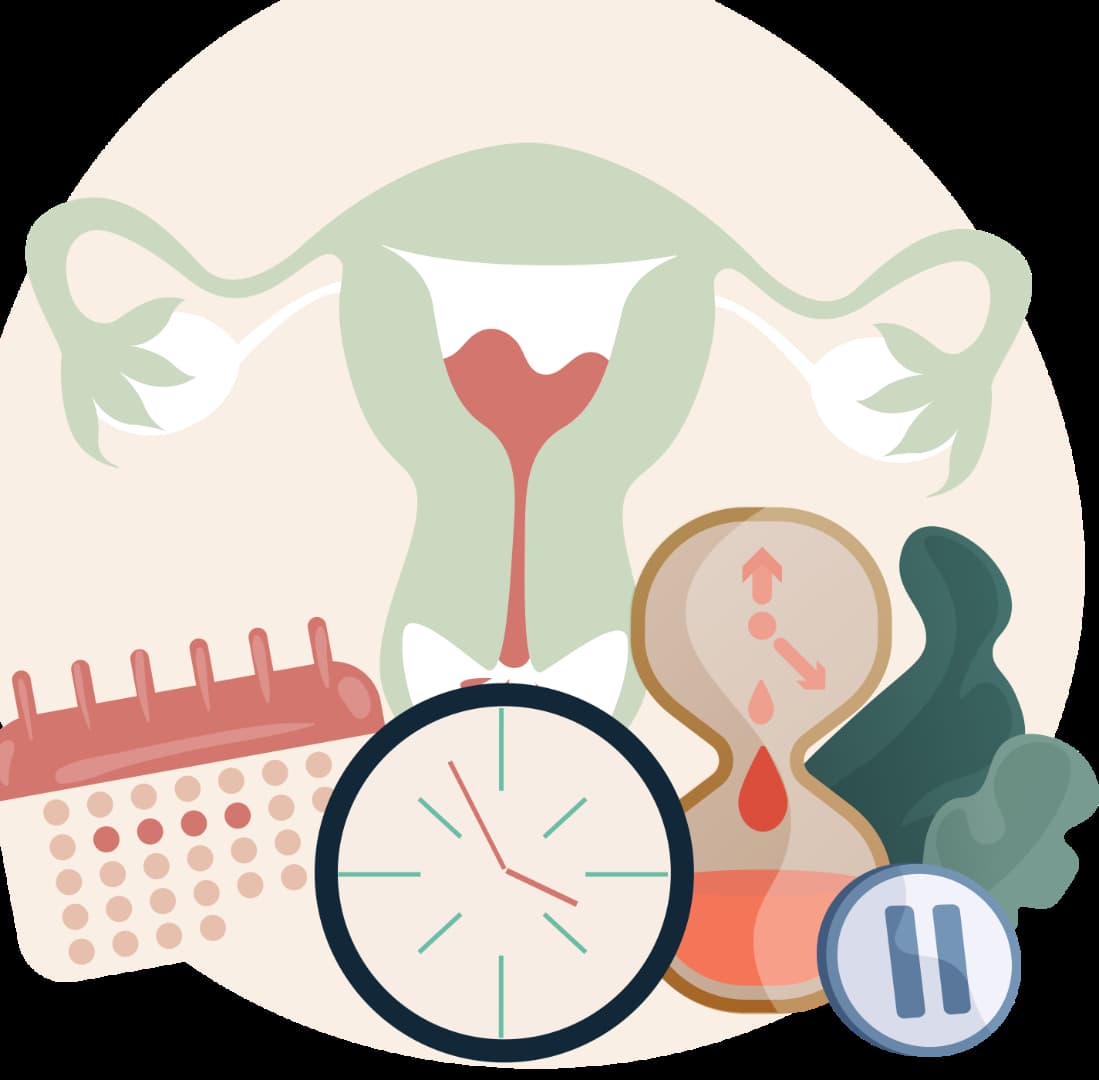This blog has been compiled by Komal Adhlaka, a content writer for Proactive For Her.
Menopause is the term used to describe the end of a woman's menstrual cycle. Menopause might strike in your forties or fifties. An early symptom of menopause could be a month or two, without a menstrual cycle. Estrogen levels drop during menopause. Hot flashes and vaginal dryness are common symptoms for some women. The most effective treatment for menopause symptoms is Hormone Replacement Therapy (HRT). It is also known as hormone therapy, menopausal hormone therapy, and estrogen replacement therapy.
Forms of Hormone Replacement Therapy
Hormone Replacement Therapy is divided into two categories:
- Estrogen Therapy: Estrogen is a hormone that is taken by itself. Doctors frequently recommend a modest amount of estrogen to be taken every day as a tablet or patch. It is also available as a cream, a vaginal ring, a gel, or a spray.
- Estrogen Progesterone/Progestin Hormone Therapy: Also known as EPT, this kind of Hormone Replacement Therapy combines estrogen and progesterone doses (or progestin, a synthetic form of progesterone).
Advantages of Hormone Replacement Therapy
Hormone replacement therapy is used to treat symptoms associated with menopause, such as:
- Hot flashes.
- Dryness in the vaginal area can lead to uncomfortable intercourse.
- Night sweats and dry, itchy skin.
Other health advantages of HT include:
- In some women, their mood and overall feeling of mental well-being have improved.
- Colon cancer risk is reduced.
- Tooth loss is reduced.
- Diabetes’ risk is reduced.
- Joint pains have improved somewhat.
- Reduced likelihood of developing osteoporosis and fracturing a bone.
Side Effects of Hormone Replacement Therapy
For most women, the risks of Hormone Replacement Therapy are typically minor and largely dependent on the type of HRT you use, the length of time you use it, and your health risks. If you're considering starting HRT or if you're already using it and are concerned about the hazards, talk to your doctor. The following are some of the known health risks:
- bloating
- soreness in the breasts, as well as swelling in other regions of the body,
- nausea
- leg cramps
- indigestion
- headaches
- vaginal bleeding
After a few weeks, these adverse effects are usually gone. To reduce the severity of adverse effects,
- Take your estrogen dosage with meals to help nausea and indigestion;
- Opt for a low-fat, high-carbohydrate diet to reduce breast soreness;
- Exercise regularly to reduce leg cramps.
If side effects continue, your doctor may suggest moving to a different form of estrogen, changing your drug, or reducing your dosage.
Progestogen side effects
The following are the most common progestogen adverse effects:
- soreness in the breasts
- headaches or migraines edema in other regions of the body
- back pain
- acne
- abdominal discomfort
- depression mood swings
- vaginal bleeding
These side effects generally go away after a few weeks. If they don't go away, your doctor may suggest switching to a different progestogen, altering your drug, or reducing your dose.
Other risks of Hormone Replacement Theory
- Weight gain- Many women fear that taking HRT will cause them to gain weight. However, there is no scientific evidence to back this up. During menopause, you may gain weight, although this is common regardless of whether or not, you use HRT.
- Breast Cancer- A slight increase in the risk of breast cancer has been linked to combined HRT. The increased risk is proportional to the length of time you use HRT, and it decreases after you stop using it.
- Clots in the blood- Although there is no higher risk of blood clots from HRT patches or gels, using HRT pills does raise your chance of blood clots.
If you do the following, you may have fewer problems:
- Take the smallest dose that works for you for as little time as possible.
- Inquire about HRT alternatives to tablets, such as patches, gels, vaginal creams, vaginal rings or like so.
- If you still have your uterus, use progesterone or progestin.
- Mammograms and pelvic examinations should be done regularly.
- HRT should be started within 10 years of menopause.
Most of the time, these adverse effects are minor and do not necessitate stopping your Hormone Replacement Therapy. If your symptoms are bothering you, talk to your doctor about reducing the adverse effects. Never stop taking your medication or make any changes to it without first consulting your doctor.
According to further research, these risks differ based on:
- Age: Women who start hormone treatment at age 60 or later, or more than 10 years after menopause, are more likely to develop the problems listed above. However, the advantages tend to exceed the hazards if hormone treatment is started before the prescribed time period, following menopause.
- Medical history: When deciding if a certain HRT is right for you, consider your family history, personal medical history, and risk of cancer, heart disease, stroke, blood clots, liver disease, and osteoporosis.
- Type of therapy opted: Risks of HRT differ depending on whether estrogen is administered alone or in combination with progestin, as well as the amount and kind of estrogen used.
Hormone Replacement Therapy is typically not suggested if you have any of the following conditions:
- breast cancer or endometrial cancer
- unusual vaginal bleeding
- high risk for blood clots
- pregnancy
- liver illness
- stroke, heart attack, or vascular disease
Final Word
Menopausal hot flashes can be managed with healthy lifestyle changes including staying cool, avoiding caffeinated beverages and alcohol, and practicing timed calm breathing or other relaxation techniques. Several non-hormone prescription drugs might aid with hot flashes relief. Talk to your doctor about your specific symptoms and health concerns to see if Hormone Replacement Therapy is an appropriate treatment choice for you. Throughout your menopausal years, be sure to keep the discussion continuing. Recommendations may change as more is learned about HRT. If you're still having trouble with menopausal symptoms, talk to your doctor about your treatment choices frequently.
Disclaimer - This information is provided for educational purposes and should not be construed as medical advice. Please consult with your healthcare practitioners before undertaking any changes in your diet or adding supplements.
Proactive For Her is a digital clinic for women, offering accessible, personalized, and confidential healthcare solutions. We offer products and services for out-patient health concerns of Indian women, across their lifetime - from puberty to pregnancy to menopause. To know more on the sexual and reproductive health of women, visit https://www.proactiveforher.com/

